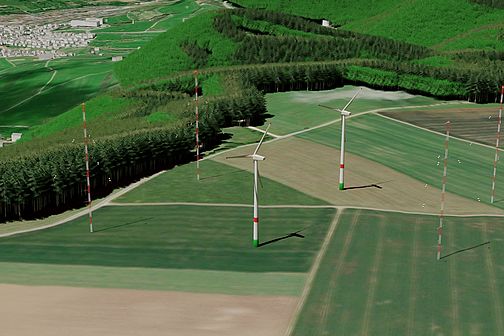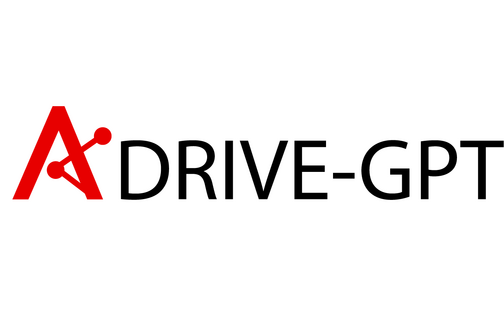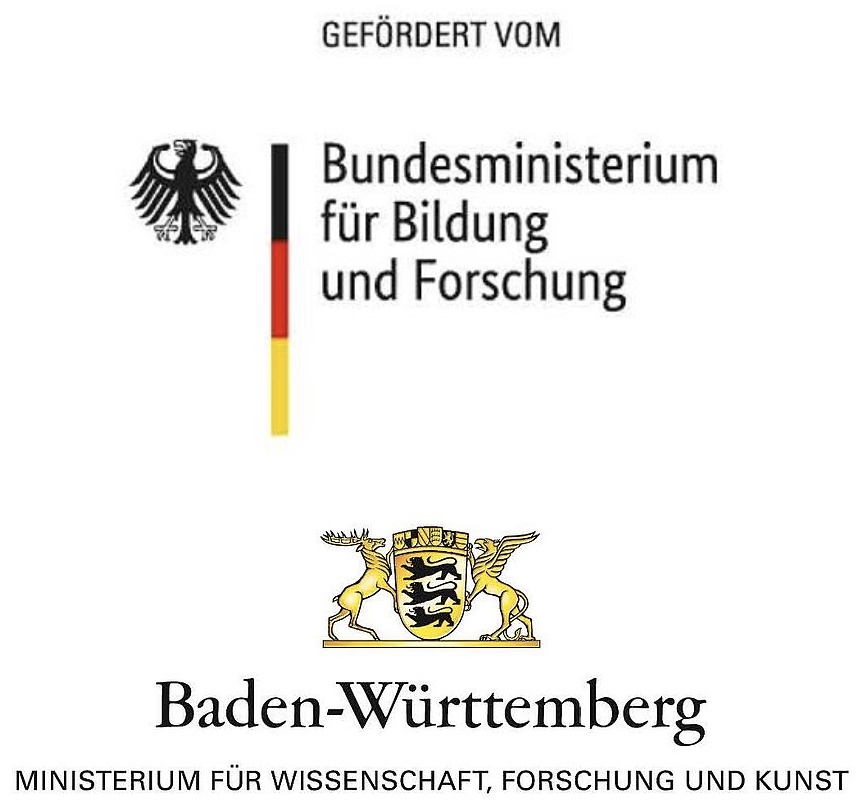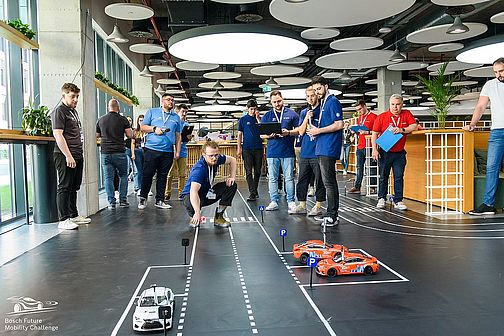ADRIVE-GPT
Autonomous Driving with Generative Pre-Trained Transformers
ADRIVE-GPT is dedicated to the research and application of anchored language models (Large Language Models, LLMs) in the context of automated driving. Previous studies have only considered LLMs for simple tasks in stationary robotics. ADRIVE-GPT will investigate how multimodal sensor perceptions from camera and lidar sensors can be combined with natural language to generate action plans for accident-free and human-like autonomous driving. In addition, it will be investigated whether the learning process can be supported by already processed knowledge about static and dynamic objects.
| Project Duration: | 01/2025 - 06/2029 |
| Project Team (IIS): | |
| Project Partners: | Munich University of Applied Sciences, Mercedes-Benz AG, Spleenlab GmbH |
Further information:
ADRIVE-GPT Webpage
AnoMoB

Anonymized Collection and Use of Mobility and Movement Data (2022-2025)
For years, new forms of individual and collective mobility have been evolving. Service providers, including car-sharing and public transport, require insights from mobility data to tailor their services to user needs while conserving resources and protecting the environment. The "Anonymized Collection and Use of Mobility and Movement Data" (AnoMoB) project aims to develop anonymization techniques that allow providers to enhance mobility data collection and processing, while safeguarding citizen privacy.
Initially, the project will determine specific data needs of service providers, such as types of mobility data and attributes like age and income, required for planning resource-efficient, user-centric mobility. Based on these requirements, tailored technical solutions will be developed for privacy-compliant data collection, ensuring sensitive information is secured with robust protection measures. This approach also aims to boost user trust in service providers through reliable anonymization of their personal data.
| Project Duration: | 12/2022 - 12/2025 |
| Project Team (IIS): |
Funded by the Bundesministerium für Bildung und Forschung
DACHS - Data Analysis Cluster of the HAWs in Baden-Württemberg
The data analysis cluster of the HAWs in Baden-Württemberg - “DACHS” for short - provides the universities with computing capacity for data-driven research and teaching in the fields of machine learning, visual data analysis and big data, integrated into bwHPC. The cluster allows work to be carried out both locally and remotely using modern interfaces such as JupyterHub. By connecting to bwHPC, researchers can link to the tier-3 clusters in bwHPC, as well as to the tier-2 systems of KIT and the tier-1 systems of HLRS.
| Project Duration: | 08/2024 - 07/2029 |
| Project Team (IIS): |
Further information:
DACHS Wiki
DFG Research Impulse - Smart Factory Grids

DFG Research Impulse - Smart Factory Grids (2024-2029)
The research initiative "Smart Factory Grids," funded by the Deutsche Forschungsgemeinschaft (DFG, German Research Foundation), focuses on the concept of an intelligent factory. Our vision is a distributed manufacturing network, where multiple specialized production units are interconnected by autonomous (ground-based and aerial) systems to achieve highly flexible manufacturing for small batch sizes, with dramatically reduced setup times. At the heart of these Smart Factory Grids are cyber-physical systems, designed to operate autonomously and cooperatively. These systems will self-assess and adapt, maintaining resilience against disruptions. This is more than just automation; it's about creating a manufacturing ecosystem that's intelligent, responsive, and sustainable.
| Project Duration: | 04/2024 - 03/2029 |
| Project Team (IIS): | Prof. Dr. Markus Enzweiler + PhD students |
Further information:
Press release (in German)
HE-Personal
Overview (2021-2027)
Under the joint "FH-Personal" program by the federal and state governments, 64 universities of applied sciences, including Esslingen University of Applied Sciences, are receiving support for recruiting and developing professorial staff. Esslingen University, one of 13 universities in Baden-Württemberg awarded in the first funding round, is set to receive over six million euros for the project. This funding aims to nurture young academics at the university, preparing them as qualified candidates for future professorships at universities of applied sciences (HAW). The "HE-Personal" project at Esslingen University focuses on attracting top-tier academics with practical experience to teach and conduct research across eight forward-looking project clusters.
Project Cluster Autonomous Systems
Autonomous systems, a cornerstone of intelligent robotics, represent one of the most dynamic research domains globally, especially in machine learning applications. This area holds significant strategic value for the Stuttgart region, given its strong industrial base. Within the HE-Personal framework, the emphasis is on artificial intelligence research, particularly in developing methods to minimize resource consumption in AI system development, contributing to the concept of "Green AI". This is crucial as the training of a single artificial neural network can incur substantial costs.
Research topics cover various sub-topics, such as the automation of the architecture of AI systems with a view to increasing efficiency; the learning ability of AI systems, especially from smaller amounts of data, in order to reduce the effort involved in (manual) data collection (self-supervised learning, weak supervised learning, few-shot learning, low-resource NLP); and the acquisition of a deeper understanding of AI systems in order to enable more targeted optimization of the AI architecture (explainable AI).
| Project Duration: | 07/2021 - 03/2027 |
| Project Team (IIS): | Sophie Böttcher, Prof. Dr. Alexander Brandt, Prof. Dr. Gabriele Gühring, Prof. Dr. Markus Enzweiler |
| Project Partners: | University of Tübingen, Robert Bosch GmbH |
Further information: HE-Personal project webpage
Funded by the Bundesministerium für Bildung und Forschung and the Ministerium für Wirtschaft, Arbeit und Tourismus Baden-Württemberg.
Short-Term Wind Energy Forecasting

Development of a Self-Learning Method for Improved Short-Term Wind Energy Forecasting (2022-2025)
Using spatially high-resolution, weather model-coupled CFD (Computational Fluid Dynamics) models based on the Reynolds-averaged Navier-Stokes equations (RANS), a high degree of accuracy in predicting wind speed has been achieved. This accuracy is crucial for assessing wind yields at potential sites. This success opens up the possibility of further developing these methods to create short-term forecasts for wind energy yields in complex terrains for wind turbines. The existing approach, which combines mesoscale weather models with artificial intelligence methods for forecasting (hybrid methods), will be enhanced. The focus will be on physical downscaling using detailed CFD simulations and the application of ensemble weather forecasts to determine the physical uncertainty in these forecasts.
| Project Duration: | 09/2022 - 09/2025 |
| Project Team (IIS): | |
| Project Partners: | WEPROG GmbH |
Funded by the Deutsche Bundesstiftung Umwelt (DBU).





